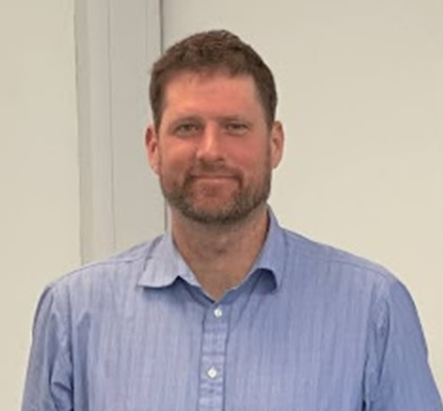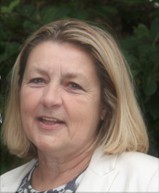Forthcoming events
Events for 2025-2026.
Members and visitors are welcome at all meetings.
Meetings are held either online via Microsoft Teams, or as physical meetings. The choice will be shown here when details are available. In either case they will commence at 7:00 pm.
Wednesday 24th September 2025, at 7:00pm:-
A technical and operational overview of Airlander, by Head of Airworthiness, Andrew Barber.
(Microsoft Teams Presentation).
This presentation can be found at 'Past Events'
Wednesday 29th October 2025, at 7:00 pm :-
Topic: Weeds: Problems, Possibilities and the Future of Farming
Presenter: Dr. Helen Metcalfe, Rothamsted Research.
(MS Teams presentation).
This presentation can be found at 'Past Events'
Wednesday 12th November 2025, at 7:00pm
Topic: Capturing the Cosmos: A journey through Astrophotography.
Presenter: John Nedelcu, Mechanical design engineer at Eaton.
(In person at Eaton). Directions to venue are on the About page.
This presentation can be found at 'Past Events'
Wednesday 28th January 2026, at 7:00pm
Topic: The evolution of soil measurement at Rothamsted, from the 19th century to today.
Presenter: Will Rickard of Rothamsted.
(Microsoft Teams Presentation).
William Rickard is a soil physicist at Rothamsted Research whose work focuses  on the hidden architecture of soils and how root–soil–water interactions shape crop resilience and climate outcomes. His projects range from work on the long-term field and developing new frameworks for early-warning indicators of soil degradation. He also works on developing new sensing technologies to support research and agricultural decision making. Alongside his scientific research, he is deeply engaged in entrepreneurial ventures translating soil science into farmer-led tools, and he writes widely on the intersections of science, society, and story.
on the hidden architecture of soils and how root–soil–water interactions shape crop resilience and climate outcomes. His projects range from work on the long-term field and developing new frameworks for early-warning indicators of soil degradation. He also works on developing new sensing technologies to support research and agricultural decision making. Alongside his scientific research, he is deeply engaged in entrepreneurial ventures translating soil science into farmer-led tools, and he writes widely on the intersections of science, society, and story.
Synopsis:
This talk will explore the evolution of soil measurement at Rothamsted, from the pioneering experiments of the 19th century to today’s efforts to probe the hidden dynamics of the root–soil–water system. I will highlight recent findings on how crops actively regulate root water uptake, and discuss the challenges of developing sensors that reach below ground to capture these processes in real time. Moving beyond measurement alone, our work is increasingly focused on inferring function: interpreting data not just as numbers, but as indicators of resilience, thresholds, and early-warning signals of change. By linking history, field experiments, and sensor innovation, the talk will reflect on how measurement and control in soils can underpin both fundamental understanding and practical decision-making for agriculture and the environment.
Wednesday 25th February 2026, at 7:00pm
This is a Joint Meeting with the Institute of Physics.
Topic: Hyper-aperture Ultrasound: A New Paradigm in Medical Ultrasound.
Presenter: Dr. Laura Peralta Pereira, Senior Lecturer in Biomedical Engineering at King’s College London.
(In person at the Lindop Building, College Lane, University of Hertfordshire, Hatfield, Herts, AL10 9AB).
This event is free, but please book here to ensure your place is reserved.
Synopsis:
Ultrasound is one of the most used medical imaging modalities. It is safe, portable and inexpensive, and it provides real-time images without radiation. However, conventional systems are limited by physical constraints leading to low resolution images with a restricted field of view and view-dependent artefacts. This lecture will discuss ongoing efforts to advance medical ultrasound via the use of hyper-apertures, a new approach that Dr. Peralta Pereira’s group has pioneered.
Speaker: Dr. Laura Peralta Pereira.
Laura Peralta is a civil engineer who holds an MSc in Structural Mechanics and a PhD degree
from the University of Granada, Spain. She is currently a Senior Lecturer in Biomedical
Engineering at King’s College London where she co-leads the Quantitative Ultrasound
Imaging and Intervention Lab (QUIINlab).
Her research interests range from fundamental ultrasound studies to clinical applications,
including ultrasound propagation in complex media, beamforming methods, quantitative
ultrasound and tissue characterization. She was awarded the Wellcome/EPSRC Centre for
Medical Engineering Research Fellowship in 2021, and since 2022, she holds a Royal Society
University Research Fellowship.
Wednesday 4th March 2026, at 7:00pm
Topic: Let’s get buzzing – growing London’s pollinator numbers.
Presenter: Dr. Heather Barrett-Mold OBE.
(In person at Eaton). Directions to venue are on the About page.

London is fortunate to have green areas covering nearly a third of the capital. Some capital cities have nothing near that amount. The challenge is to encourage management of these green spaces in a way that embraces the needs of a range of pollinators.
Pollinating London Together (PLT) is a charity that was created with the vision to help enhance green spaces within London by promoting habitats where native pollinators can thrive. With a longer term vision to create a template for change and action through leadership that can be implemented in urban environments across the UK.
PLT aims to champion and enhance pollinator friendly green spaces – starting in the City of London - allowing all pollinators including bees, butterflies, moths, beetles and bugs to flourish. Urban green space with its ecological diversity, is one of the most important places for pollinators because of the variety of food sources and potential nesting sites as well as helping with climate change, biodiversity and wellbeing. Insects are in severe decline but such an important part of our ecosystem and essential to enable food production - it is estimated that 1 in 3 bites of food we eat depend on pollinators. The global economy is 100% dependent on nature and natural resources and we know that nature has been historically mis-valued and its economic benefits distributed unevenly and insects have been in dramatic decline due to habitat loss and the use of pesticides.
PLT’s Objectives
PLT’s activities are designed to address three specific objectives:
• To redress the decline in pollinators in urban environments by promoting action to increase pollinator-friendly planting and habitats in the City of London and its immediate environs
• To raise awareness of the human benefits of pollinators and pollinator-friendly planting across the wider population of residents, workers, and organisations in the City of London
• To inform and encourage companies, organisations, and individuals to make meaningful decisions to make this happen.
Through this partnership we have become involved in wider groups such as the DEFRA Pollinator Action Strategy Group and Historic Royal Palaces Moat advisory group for the Tower of London.
We also enagage with schools and educational days within the City of London and surrounding areas to extend the understanding and knowledge of the importance of bio-diversity and pollinators.
By enhancing biodiversity networks across the City it helps to improve green spaces for pollinators. Pollinators do not recognise political boundaries and we therefore plan to link the city with surrounding areas.
For further information please visit our website at:
www.pollinatinglondontogether.com
 Dr Heather Barrett-Mold OBE
Dr Heather Barrett-Mold OBE
Heather is Vice/Co Chair of the Pollinating London Together Charity which she co founded in 2020, and leads the science and education work. The main objective is to prevent the decline of pollinators initially in the City of London and beyond and help greenspace managers to improve habitats with pollinator friendly planting and space for nesting.
Heather is a Past Master of the Gardeners Livery Company, and founder member of the Livery Climate Action Group.
Heather is a Chartered Scientist, Chartered Horticulturist, Chartered Environmentalist and Chartered Biologist. She was Principal/CEO of Pershore Group of Colleges and responsible for a 600 acre mixed farm and fruit production and cider unit. She was a member of the Government Advisory Panel on Sustainable Development Education for its lifetime of 5 years, and then Advisor on the Secretary of State Sounding Board. Heather was an expert with the Commission for Sustainable London 2012; a body engaged with delivering a sustainable Olympic Park. She was until recently Vice Chair of Governors at Capel Manor College. She has been a Secretary of State Board member for the Chilterns Area of Outstanding Natural Beauty. She is a Fellow of the Linnaean Society, Vice President of the Institution of Environmental Science, Past President of the Institute of Horticulture, and previous Chair of the Science Council.
Refreshments from 6:45pm.
The presentation will be followed by an opportunity for informal discussion and conversation over a buffet supper. A donation of £2 per person is requested as a contribution to costs.
Members, non-members and guests are most welcome.
Further details of our 2025-2026 programme of meetings will be shown here when available.
Previous events
Below is a summary of the events held in 2025-2026.
Videos, where they are available, may be viewed from the 'Past Events' page.
If you need any additional information please contact Tom Purcell by email or 07306 757000.
Please refer to 'Past Events' for presentations from previous year's programmes.